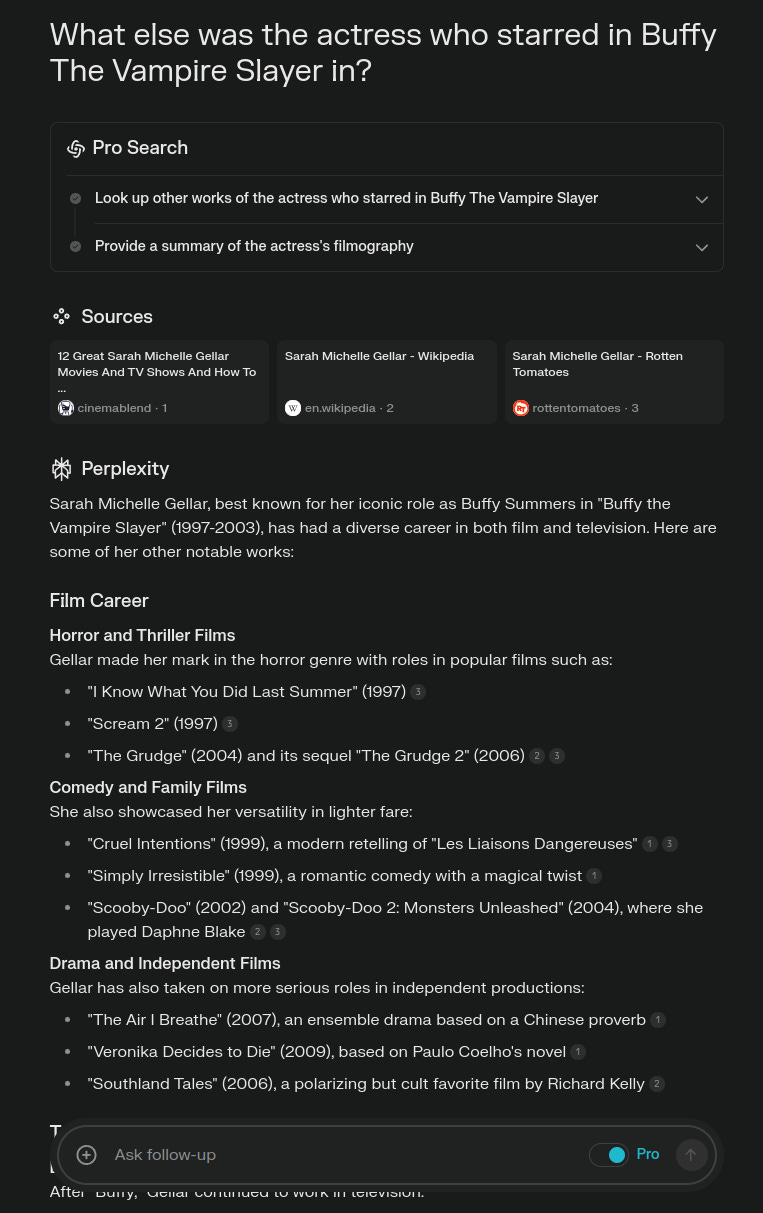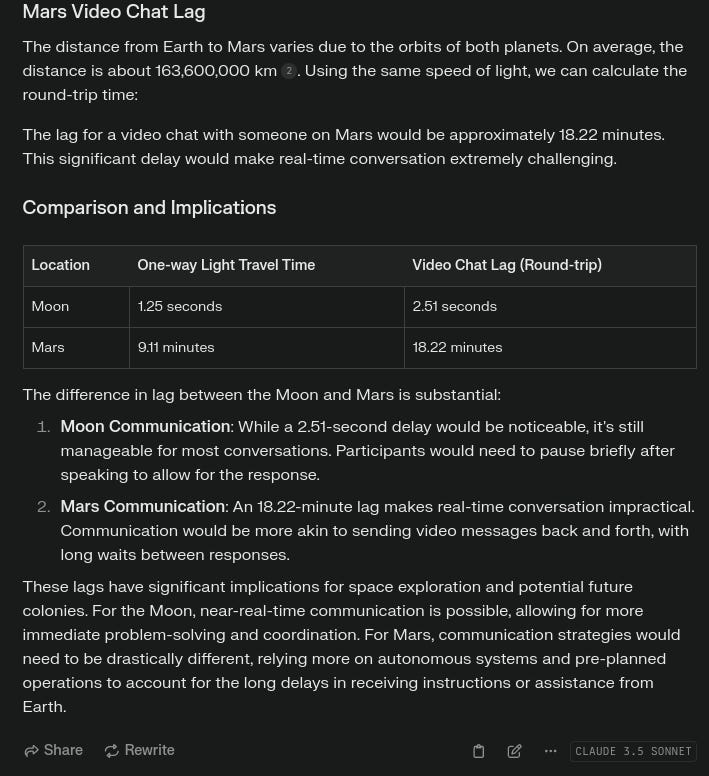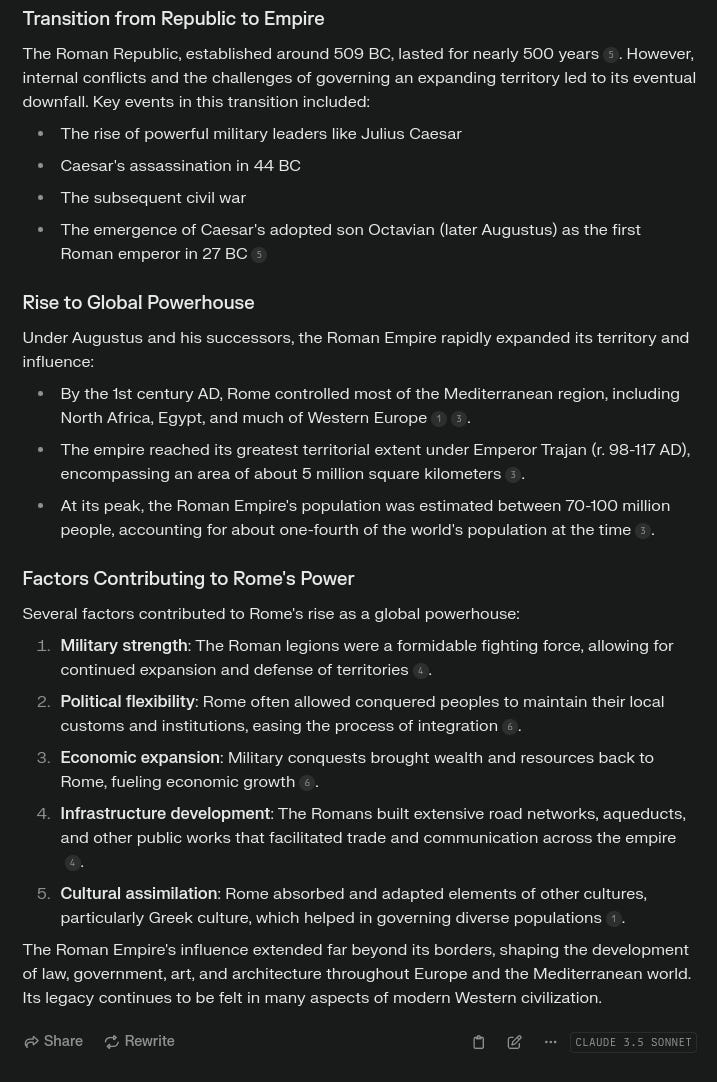Welcome to the Deep Medicine Digest! My name is Dr. Robert Toth and I run Theta Tech AI, a healthcare AI consulting firm.
Has someone forwarded this article to you? Click here to subscribe to this newsletter for free and get AI content sent directly to your inbox:
What is Perplexity?
If you have not hopped on to the Perplexity.ai bandwagon, do it now lest you fall behind. It should be your first stop on any question you want to find an answer to online. Instead of using Google or Bing or DuckDuckGo or any other web search engine to find you a list of web pages that you click through and read yourself, Perplexity does the hard work for you. It searches the web, reads the pages, and summarizes the results for you in a clean way using an LLM (e.g. ChatGPT) on the backend. Before using a search engine or a chat bot, “plex” it (vernacular donned by the Founder/CEO Aravind Srinivas).
Limited Hallucinations
We all have seen examples of LLM’s such as ChatGPT or Claude “hallucinating” or making up information that does not exist. All these models do is predict the next word to type, so it’s not always factually correct. However, Perplexity is not trying to directly answer your question, but rather use your question to aggregate and summarize web pages. Hence it’s far less prone to hallucinations. The LLM backbone compresses the information on the web pages into an answer for you. While hallucinations are not entirely absent, directing the AI to provide summaries of live web data significantly reduces the rate of hallucinations. And, importantly, it cites its sources, so you can always just read the web page yourself when in doubt.
Use Case: Trivia
Want to know what else that actress was in? Plex it.
Curious would the communication lag would be with someone on the Moon or Mars? Plex it.
Want to hear about the origins of the Roman Empire? Plex it.
The possibilities are endless. Each source it cites is shown as a light gray number (e.g. “3”) that you can click on. The beautiful thing is not that it uses AI, but rather that it intelligently aggregates multiple sources of information.
Use Case: Coding
At my healthcare AI consulting company Theta Tech, everyone is encouraged to take full advantage of Perplexity for their coding questions. It includes Stack Overflow as a source, and thus you usually end up in the same place as if you had searched yourself. But what if someone made an obscure comment on a Github repository, and another person struggled with the same problem and solved it and wrote a blog post? Well sure, you can do a web search and read all those pages yourself… or you can just Plex it. When used well, Perplexity is a tremendous boon in engineering productivity. Hours spent looking up coding questions and searching online API documentation have been compressed to mere minutes by simply using Perplexity first. This means less time reading web pages and more time writing code.
Want to know how to use the HuggingFace library? You can read the documentation yourself, or you can Plex it.
Curious how to hook up DynamoDB with Serverless Framework? Plex it.
It formats code very well and it scours Youtube, StackOverflow, library documentation, and blogs as sources. If the answer is on the internet, it will find it.
Advanced Feature: Focused Sources
Let’s say you want to learn about the latest medical research for childhood diabetes, but you don’t want to search the entire web and potentially pollute your answer with random blog posts. You can limit Perplexity to only focus on peer-reviewed academic publications when you Plex it. This can be extraordinarily useful for scientific or medical inquiries.
As you can see above, when asking a new question, you can limit your sources to only “Social” (which typically means Reddit), to only “Videos” (which typically means Youtube) as well as several other options. It allows you to upload your own PDF’s as sources, and recently it came out with an enterprise solution that can scan a company’s internal documents (and, in the future, Slack messages) as its sources.
It’s All About Efficiency
It’s all about efficiency. Sure I can read web pages myself, I can synthesize information, I can write thousand word pages on what I read, and I can figure out answers to coding questions online. But now I get to do all that in a fraction of the time. This means more time focused on building, engineering, designing, and communicating information instead of gathering it. Everyone at Theta Tech is strongly encouraged to upgrade to Perplexity Pro (to get access to the latest LLM backends for summarization, such as GPT-4o or Claude 3.5 Sonnet), and to Plex it before searching online.
It is not always easy to get your query correct, but that is where the art and science of prompt engineering comes in. By being encouraged to use Perplexity regularly, our coders have become quite adept and skillful at asking the right questions to get the answers they need extremely swiftly, thus tremendously boosting their productivity. This is how we stay ahead in a competitive market. By leveraging Perplexity, we cut down on time spent gathering info, so we can focus on building and innovating—keeping us ahead in the game.
We let Perplexity do the heavy lifting for us; we’re too busy engineering great healthcare AI solutions for our clients.








